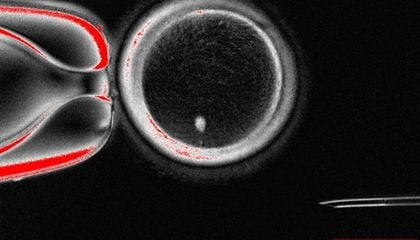Scientists Create Human Eggs from Skin Cells, Paving Path for Fertility Advances

Groundbreaking research from scientists at Kyoto University has demonstrated the ability to create functional human eggs using skin cells, marking a significant advancement in reproductive technology. This study, published in August 2023, showcases a potential pathway for enhancing fertility treatments, though it also raises complex ethical questions that warrant careful consideration.
The research team successfully transformed skin cells into primordial germ cells, which are crucial for developing eggs. This transformation is notable because it provides a new avenue for individuals facing infertility challenges, particularly those with limited options due to age or medical conditions. By harnessing the body’s own cells, the scientists aim to offer hope to many who wish to conceive but encounter obstacles in traditional fertility methods.
While the findings are promising, experts caution that further refinement and extensive clinical trials are necessary before these techniques can be widely adopted in fertility treatments. The path ahead will likely involve addressing not only the technical challenges of making this technology safe and effective but also navigating the ethical implications of manipulating human gametes.
The advancement has reignited discussions surrounding the ethics of reproductive technologies. Concerns have been raised about the potential for misuse of the technology, including the possibility of creating embryos with genetic modifications. As such, many in the scientific community stress the importance of establishing clear regulations to govern the use of such innovations.
In addition to ethical considerations, the research highlights a growing intersection between biotechnology and reproductive health. As scientists continue to explore the possibilities of using skin cells for reproductive purposes, they are also faced with the challenge of ensuring public trust in these technologies.
The Kyoto University study is a pivotal step in a field that has seen rapid advancements over the past decade. As more research emerges, the implications of creating human eggs from skin cells could reshape the landscape of fertility treatments and reproductive health.
Overall, while the breakthrough presents a promising opportunity for future fertility solutions, it underscores the need for ongoing dialogue regarding the ethical dimensions of such powerful technologies. As the research progresses, the balance between innovation and ethical responsibility will be paramount in shaping the future of reproductive medicine.






